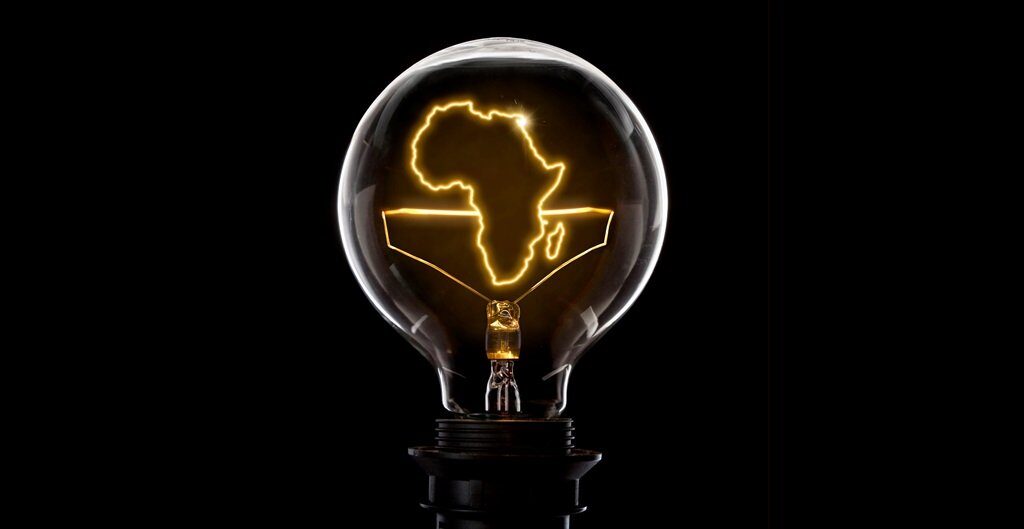This year’s COP27 climate summit in Egypt is an opportunity to direct meaningful investments that will help Africa forge a green recovery, adapt to the impacts of climate change and boost wider sustainable development – picking up from the disappointments of last year’s COP26 in Glasgow.
The Glasgow Climate Pact, agreed in November, may have marked some positive steps towards accelerating emission reductions. But for the poorest and most vulnerable countries already coping with impacts such as floods, droughts, extreme temperatures and even locust swarms, it falls far short of what they need to adapt and continue to develop, Africa experts said in a briefing this month.
The response to the climate crisis pales compared to what governments have already done in response to Covid-19. They have already spent $20 trillion on recovery from the pandemic, over just two years. This is exacerbating global inequalities, as recovery spending from OECD countries breaks down to around $11,000 per capita; from African low-income countries It averages $57 per capita.
Meanwhile, at COP26 developed countries failed once again to fulfil a pledge made in 2014 to shore up $100 billion per year of public and private climate finance. The UK government expects the goal to be met in 2023.
“The fact that this sum has not been mobilised is frankly unacceptable in the context of the amount of money which has been mobilised to respond to Covid,” said John Paul Adam, director of technology, climate change and natural resources at the UN Economic Commission for Africa.
African countries are already spending up to 9% of their GDP per year on responses to disasters related to climate change, such as the severe drought in Madagascar that is pushing more than 1 million people into famine. That’s far higher than the number of people displaced, the costs and the loss of livelihoods experienced in Europe, Adam said.
Egypt’s COP27, on 8-20 November, can turn the world’s attention to climate justice. It can focus on the needs, concerns and demands of the developed world, with conversations, partnerships and decisions led by those most at risk from the climate crisis.
“Ultimately in African countries when you’re investing in climate resilience you’re investing in development,” Adam said. “What we saw in Glasgow, which I think is a very dangerous trend, was that a lot of countries came with new finance around climate change but their overall development finance dropped.”
The bumpy road to Egypt
The European Union-African Union Summit in February marked a first opportunity to talk about how the EU and other wealthy countries will support a green and just transition in Africa, and raise the share of adaptation finance to half of total climate finance (from around 20% now).
But sticking points stand in the way. The EU is setting a worrying example with its own policies for reaching net zero emissions by 2050, with a decision by the European Commission to include gas in the bloc’s new taxonomy – or classification – of environmentally sustainable activities.
“What are we going to do with these sticking issues, for instance around gas? What are we going to do around the just transition and making sure that countries that are moving forward – once again through a climate lens – are really able to support not only the switch to a green economy, but also feed their people and create jobs and grow their economy?” said Jacqueline Musiitwa, senior associate at ZeniZeni Sustainable Finance.
“My concern is that for an African context, a lot is being proposed that is not sustainable at the moment, because the road forward has not been made clear enough,” she added. Instead, African governments are currently expected to act without the necessary financing.
Breaking the loggerhead will require the developed world to shift into listening mode, speakers agreed. They need to listen to what African and other low-income countries say they need, and figure out ways to quickly deliver, and scale up, public and private finance for adaptation, resilience and sustainable development.
The Intergovernmental Panel on Climate Change’s upcoming report on impacts, adaptation and vulnerability, due on 28 February, will set a foundation from which to focus minds on climate justice, said Tasneem Essop, executive director of Climate Action Network.
“We have to use this African COP to make a very clear connection between the climate and development agendas and as part of that,” she said, pointing to the G7 to lead the way by showing solidarity with those suffering the most, including by sharing more Covid-19 vaccines.
Climate action solutions in Africa – such as renewable energy investments – can drive wider economic recovery and sustainable development, Adam said. Some 600 million people in Africa still lack access to energy. Providing clean, affordable energy to rural and disconnected areas will lead to further development by, for example, allowing for the refrigeration of medication and fresh food and lighting for children to study after dark.
African countries also need the developed side to agree to restructuring their debt, which is making it harder for low-income countries to cope with impacts from climate change and Covid-19. African countries spent an average 7% of their GDP on debt in 2021, and it’s expected to be the same this year.
There are opportunities to reschedule or restructure debt so that more vulnerable African countries can invest the savings into climate resilience, Adam said.
And finally, COP27 offers the opportunity to develop a “truly developmental carbon market” that takes advantage of Africa’s large carbon sinks and allows countries to reinvest revenues from the market into sustainable development goals, he added.





